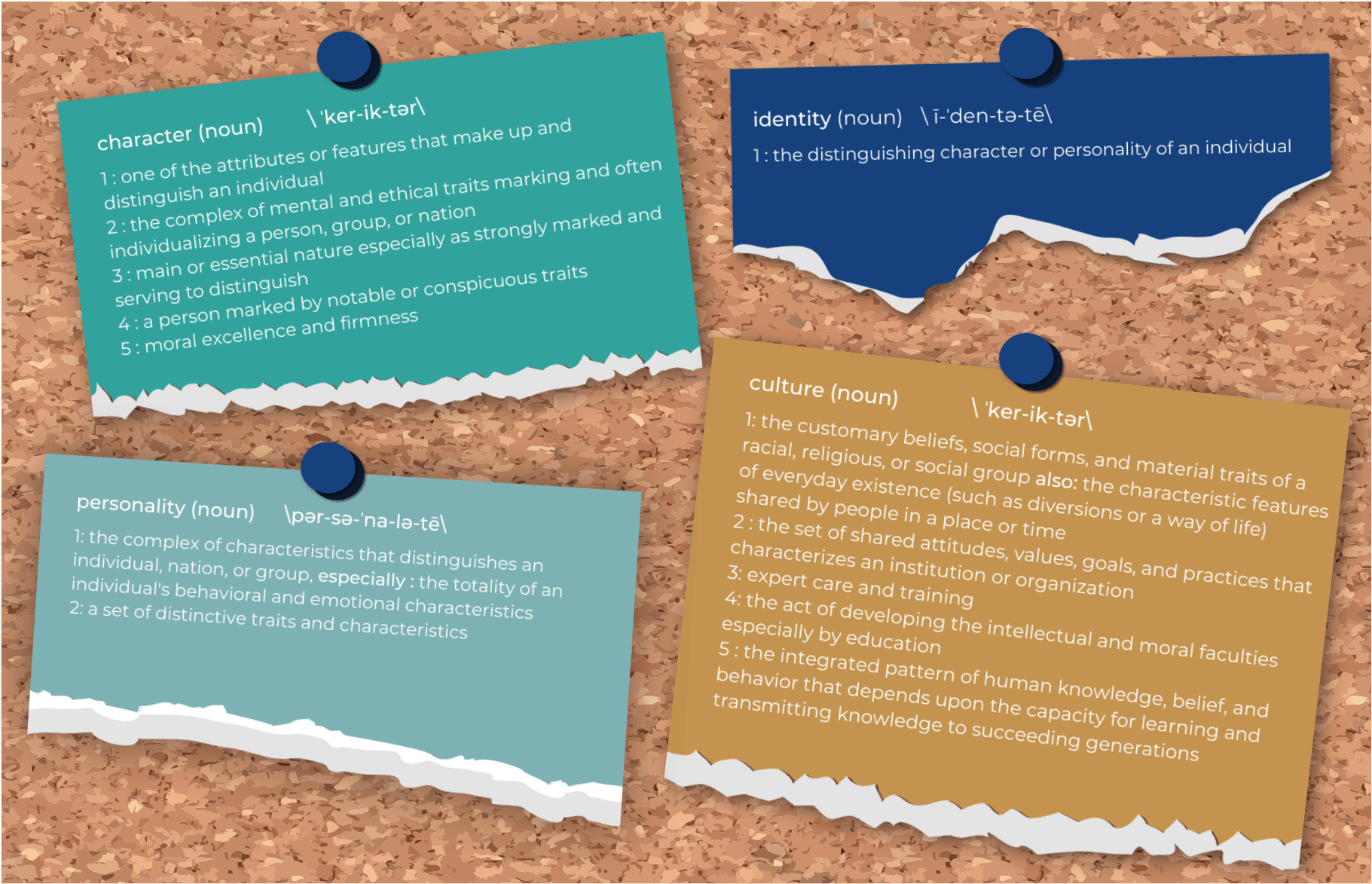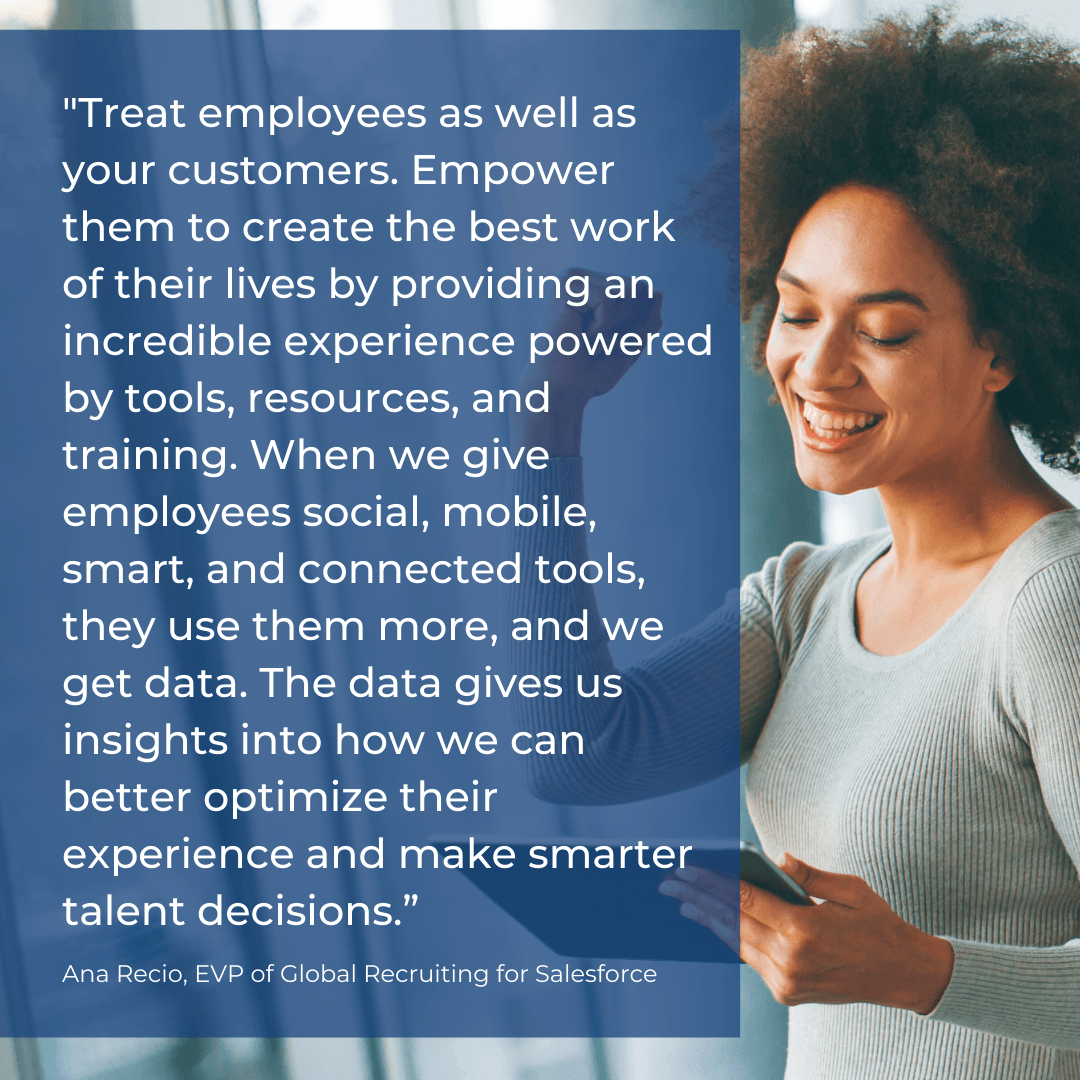Defining Your Transforming Culture

What is corporate culture - and why is it important?
- public image
- ability to attract, retain and engage talent
- everyday morale
- productivity & innovation
- how internal and external policies are designed
- how decisions are made
Culture Sells
In a candidate-driven employment market, your culture is a key differentiator.
Think of culture as an influential part of any job offer that you make—the same way you think of the compensation and benefits that you offer.
Package cultural highlights so they can be presented to candidates as a selling point during the screening process.
When a candidate feels that the work environment, values, vision, philosophies and ethics are in alignment with their own, it may be the deciding factor that convinces them to join your team.
Culture in the Age of Digital
Digital Workplaces are one of the natural advantages of having a cloud-based technology infrastructure. Flexible, remote work arrangements are a big draw and a bargaining chip during talent acquisition. Progressive employers recognize that in addition to promoting work-life balance, there are many operational and cultural advantages.
Here’s a sampling of benefits that you may want to focus on:
The Benefits of the Digital Workplace
- Organizational design and scheduling that’s employee-centered.
- Satisfy demands of workers and consumers. More work-shifts, coverage hours, convenience and flexibility.
- Promote work-life balance. More time for family, personal relationships, hobbies, and passions. Happier employees.
- Hire from a larger talent pool and assemble diverse global teams.
- Increased accessibility of knowledge and data.
- Improved business operations with automated digital processes and work-flows.
- Greater business continuity.
- Staff that’s immersed in technology, and more technical by default.
- More transparency when desired.
- Less risk and overhead than brick and mortar
As teams embrace remote work arrangements, the way companies define their culture is transforming.
Rather than conveying a strong sense of place and physical amenities, culture is more an indicator of the values, philosophies, and management strategies at your company.
Check out our blog on employer branding for guidance on shifting the culture conversation at your company.
Business Insights from COVID
While the benefits of Digital Workplaces are tough to dispute, there are cultural challenges that everyone is feeling as a result of COVID.
In August 2020, research commissioned by Microsoft cited a key takeaway:
Workers impacted by COVID across 15 European markets want more flexible, remote ways of working to continue.
In the same study, remote workers in all countries and industries reported feeling:
- a weaker sense of company culture
- less team cohesion
- less collaboration
- worker isolation
- less innovation around core products & services
It’s important to note that the majority of research on remote work was conducted during a pandemic — a global crisis that affected business directives; what teams were focused on; and how they were feeling. For many companies, COVID required fast decisions; fast operational changes; and fast technology implementations — without adequate time for careful platform evaluation, selection, configuration, training, or integration. And in some cases, “non-critical” business operations, initiatives, and programs were paused during the pandemic.
Business leaders have an opportunity before them. It’s time to “geek out” on trust building strategies in digital workspaces that are now fully equipped with the technology framework that supports remote work, increased collaboration for diverse teams, and greater work-life balance. Get inspired with the strategies that follow.
It’s time to refine.
Engagement strategies for hybrid, remote and distributed teams.
- A culture of trust requires a human touch.
- Encourage teams to have open and honest dialogue. Let them know it's safe to speak up; safe to ask questions; and safe to make mistakes.
- Give genuine feedback frequently; and ask for feedback regularly. Show employees that their feedback matters by implementing their best ideas, and giving them all the credit.
- Empower your teams. Give them the information, tools and opportunities to make autonomous decisions, collaborate, innovate, and utilize their full range of skills.
- Recognize and reward individual and group performance.
- Focus on communication.
- Evaluate technology needs.
- Is there an opportunity to improve workflows, optimize processes and automate repetitive tasks or inefficiencies?
- Are collaboration tools being utilized?
- Do remote teams need project management tools that are more integrated or robust? Is there a need for help and ticketing systems?
- Do you need a centralized knowledge base or intranet where teams can access and share policies, procedures, training, announcements, and news?
- Is your infrastructure protected with security that supports 24/7/365 access to your network?
- Are there any technical training opportunities that would maximize ROI on technology spend?
- Value shared experiences in the digital and physical realm.
Trust is a necessary ingredient for innovation. Employees who innovate know that they can experiment, ask questions, get support, speak up, collaborate, and make mistakes in order to succeed. Even if you’re fully equipped with all the technical bells and whistles under the sun, building trust takes thoughtful leadership strategy and a human touch.
Here are some ways to build a culture of trust in person and digitally:
In digital workplaces, there’s an increase in written communication that’s more thoughtful, careful and deliberate than impromptu verbal conversation. The benefit here is that interactions tend to be more professional; perhaps more clear; less biased and free of office-politics. However, it’s important to remember that written communication is a skill set — and updated training may help workers craft personal messages, build deeper connections, convey appropriate tone, and select an effective format for their messages. Consider providing guidance on when to use email, chat, text, zoom, or a one-one-one phone call.
When change is conscious and intentional, business leaders are able to carefully evaluate technology, processes and tools and make better selections. As the sense of urgency from COVID wanes, there’s room to carefully analyze your technology infrastructure, identify key questions, and uncover the answers.
Here’s an example of what you may look for:
Here’s an important one. Remember that team members who prefer a digital workplace aren’t necessarily introverts — and they still value all the fun perks, branded swag, and team-building initiatives that they always did. Here are some fun ideas:
Team Building Events:
If you’re fully digital, consider hosting in-person team-building events. The budget, frequency, focus, and creativity is up to you; and part of your culture. There are wellness retreats, industry trade shows, convention centers, co-working spaces, ballrooms, restaurants, and spas to meet a variety of purposes.
Virtual Team-Building Events:
Google ‘Virtual Team Building Events’ and prepare to be amazed. Pick your favorite platform and get team subscriptions so staffers can attend virtual seminars that they’re interested in; or plan a virtual team event that everyone can attend. There are escape rooms, art classes, wine tastings, and tea tastings (and the wine -or tea- is included and shipped to team members homes.)
Send Branded SWAG:
Send branded ‘Welcome Kits' to new employees, a ‘care package’ from the team, or a gift to celebrate employee birthdays. Check sites like GemNote and swag.com to get started.
Are you tired of making offers that get turned down?
Our experienced recruiters present employment opportunities using a personalized approach that's tailored to the career goals and preferences of top candidates. And, we can connect you with employer branding experts who will showcase your culture so that it's a major selling point during talent acquisition. Request a free consultation with our team today.














